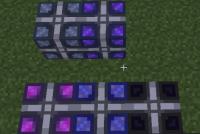What is included in a cameral examination. Cameral tax audit. How often held, venue
A cameral audit is carried out in relation to reports and documents that the taxpayer himself submits to the IFTS, or that are available to the inspection. Let us consider in more detail what a “desk audit” means and what is the procedure for carrying it out.
Department of desk audits in the tax service
Each tax inspectorate has a department for desk audits. There may be several such departments, then each has its own direction, for example, office audits of legal entities, verification of personal income tax returns, verification of income tax returns, etc.
A cameral tax audit is carried out by authorized officials - tax inspectors, whose main function is to monitor compliance with tax legislation on the basis of reports submitted by taxpayers. "Cameralians", unlike the employees of the department of field inspections, do not go to the taxpayer, but check all the documents on the spot - in the IFTS.
The main duties of the tax inspector of the office audit department are as follows:
- reception of tax returns, calculations, reports, balance sheets and other documents related to the calculation and payment of taxes and insurance premiums,
- conducting desk checks of the received reports and documents,
- conducting counter audits, if necessary - sending requests to other tax inspectorates for such audits,
- consideration of issues of refund of overpayments for taxes, insurance premiums and other payments to the budget,
- collection of evidence on the facts of violation of tax legislation by taxpayers, preparation of materials for the application of sanctions against violators, including for the suspension of operations on bank accounts in connection with the failure to submit tax reports.
In general, one can single out such main tasks of a cameral tax audit conducted by the department, as:
- verification of received reports,
- based on the results of the audit, the selection of taxpayers for conducting an in-depth cameral examination,
- selection of taxpayers, for whom it is possible to appoint an on-site tax audit.
Stages of a cameral tax audit
Article 88 of the Tax Code of the Russian Federation establishes the procedure for conducting desk audits of taxpayers. "Cameralka" is carried out on any reports received by the Inspectorate of the Federal Tax Service, and this does not require a special decision of the head of the inspection. The taxpayer is not notified of the start of the check.
A cameral tax audit is carried out in several stages:
- data on the submitted reports are entered into the automated system of the Federal Tax Service;
- reconciliation is carried out, the indicators of the reporting period are compared with the same indicators of previous periods, and compared with the indicators reflected in other declarations and reports;
- compliance with the deadlines established for the submission of a particular reporting is checked;
- identifies the reasons and grounds for in-depth verification;
- if no violations have been identified and there are no grounds for an in-depth check, then the “cameral” ends automatically, without drawing up an act. The taxpayer is not informed of the completion of the check.
If there are contradictions or errors in the reporting, as well as when claiming benefits, VAT reimbursement, tax reporting on the use of natural resources, etc., an in-depth audit is carried out. What does a cameral tax audit mean at this stage? This means that the taxpayer will be notified of the violations committed by him, in connection with which he will be asked for clarifications and, possibly, it will be necessary to amend the declaration and submit the "revision" (clause 3 of Art. 88 of the Tax Code of the Russian Federation).
The taxpayer is given no more than 5 working days from the date of receipt of the request from the Federal Tax Service Inspectorate to fulfill these requirements. Upon submission of the revised declaration, after its acceptance, the term for an in-house audit begins anew.
An in-depth desk audit is the basis for carrying out such tax control procedures as: counter audits, expert examination, interrogation of witnesses, retrieval or seizure of documents, etc.
The inspector conducting the “cameral session” is obliged to consider all explanations and documents presented by the taxpayer in his own defense. It is unacceptable to request documents and information that are not related to the audited reporting, or are not provided for by tax legislation. If the fact of a tax violation is nevertheless established, an act of a desk audit is drawn up (clause 5, clause 7 of article 88 of the Tax Code of the Russian Federation).
On some regional websites of the Federal Tax Service, you can more clearly familiarize yourself with the scheme of a cameral tax audit (for example, on the website of the Federal Tax Service of the Russian Federation for the Altai Republic).
Timing of a desk audit
A cameral tax audit is carried out at the location of the tax inspectorate within 3 months from the day the taxpayer filed the report, if the auditors have no comments on the reporting.
If violations are identified in the submitted reporting, Art. 88 of the Tax Code of the Russian Federation, in addition to the 3 months in which the desk audit is carried out, provides the following terms:
- 10 working days - to draw up an act of a desk audit;
- 5 working days from the date of drawing up the act is given for its delivery to the taxpayer;
- 1 month - the period during which the taxpayer can submit his objections to the inspection report;
- another 10 working days are given to the head of the Inspectorate of the Federal Tax Service to consider the materials of the “cameral” and the objections of the taxpayer. On their basis, he makes a decision on attracting, or refusing to bring the taxpayer to responsibility for a tax violation. In special cases, if required additional activities tax control, the period may be extended for another 1 month.
The main condition, without which a desk audit simply cannot begin, is the submission by the taxpayer of a declaration or tax calculation (clause 1 of article 88 of the Tax Code of the Russian Federation). In this case, it does not matter for what period the declaration was submitted (tax or reporting), as well as what status this declaration has (primary or revised). Note that no special decision on the conduct of the audit is issued - the “cameral” is carried out by tax inspectors within the framework of their usual job duties (clause 2 of article 88 of the Tax Code of the Russian Federation).
Hence follows the first rule: a desk audit is possible only on the basis of a declaration. If the taxpayer has not submitted a declaration to set time, then the inspectorate is not entitled to conduct a cameral inspection on the basis of other documents. In the same way, tax authorities do not have the right to conduct a desk audit of other documents that the taxpayer submits to the tax authorities, but which are not a declaration or tax calculation (for example, 2-NDFL forms).
What exactly will the inspectors check? Based on the norms of the Tax Code, the “cameral” consists in a simple arithmetic verification of the submitted data, comparing them with previous reporting and other information already available to the tax office.
This means that you require any additional documents tax authorities can in strictly limited cases. These include VAT declarations, in which the tax is declared to be refunded (clause 8 of article 88 of the Tax Code of the Russian Federation), as well as declarations with declared benefits (clause 6 of article 88 of the Tax Code of the Russian Federation). In addition, the inspectorate may require additional documents during an in-house audit of declarations on taxes related to natural resources (for example, on mineral extraction tax or excise taxes on oil, gas, etc.). In other cases, it is prohibited to require additional documents from the taxpayer (clause 7 of article 88 of the Tax Code of the Russian Federation).
Thus, we derive the second rule: in most cases, a desk review is a verification of the correctness of the definition tax base and the amount of tax to be paid based on the data indicated by the taxpayer himself in the same declaration.
Terms of verification
So, the declaration was submitted, and the inspectorate began to check it in office. How long can a check take? The term "cameral" is clearly fixed in the Tax Code - three months from the date of submission of the declaration (clause 2 of article 88 of the Tax Code of the Russian Federation). Please note that the deadline is counted precisely from the date of submission of the declaration, and not from the deadline set in the Tax Code for its submission.
In addition, it must be borne in mind that speech in in this case it is not about calendar months, but about the length of time (Art. 6.1 of the Tax Code of the Russian Federation). That is, according to the declaration submitted, for example, on June 19, the period of a desk audit will begin to be calculated from June 20 (according to Article 6.1 of the Tax Code of the Russian Federation, the terms begin to run from the next day). The verification period will expire on September 21. Indeed, September 20 this year falls on Sunday, and in such cases (according to the already mentioned article 6.1 of the Tax Code of the Russian Federation) the end of the term is postponed to the next working day.
An important point: it is impossible to extend the "cameral". Neither the tax office, nor the Ministry of Finance, nor the court have the right to renew. Accordingly, an act drawn up outside the three-month period can be considered evidence obtained in violation of the Tax Code, and therefore invalid (clause 4 of article 101 of the Tax Code of the Russian Federation).
What periods can check
Another important point that traditionally worries taxpayers during inspections is the "depth" of the audit. That is, the period that the tax authorities have the right to check. In the case of a desk audit, the answer to this question is very simple. Only the period for which the declaration is submitted is always checked.
At the same time, the inspection within the framework of a desk audit has no right to “touch” either the previous periods or the subsequent ones. Moreover, if a taxpayer suddenly decides to submit a revised declaration for a period exceeding three years, then the inspectorate will be obliged to conduct a desk audit of this declaration as well (clause 1 of article 88 of the Tax Code of the Russian Federation). This means that a ban on studying periods that are more than three years from the current date does not apply to the office audit. (True, the feed tax return for periods more than three years from the current date does not make sense, since it will not be possible to return or offset the tax for these periods (Article 78 of the Tax Code of the Russian Federation)).
Does not apply in the case of "cameral" and the prohibition to re-check the same period. After all, as we have already mentioned, the tax inspectorate is obliged to carry out such an audit on any declaration filed by the taxpayer (clause 1 of article 88 of the Tax Code of the Russian Federation). So if a taxpayer submits a revised declaration for an already checked period, the inspectorate will have to conduct a “cameral” on it (clause 1 of article 88 of the Tax Code of the Russian Federation). In other words, the number of in-house audits, for example, on income tax for the first half of 2009, depends on the organization itself. How many declarations the accountant will submit during this period, so many desk audits will take place.
Errors found
The inspectorate is obliged to inform the taxpayer about all errors, inaccuracies, contradictions, etc., discovered during a desk audit (clause 3 of article 88 of the Tax Code of the Russian Federation). In this case, the inspection must require the accountant to provide explanations or amend the declaration. The Tax Code does not specify in what form the inspectorate must transfer this requirement to the taxpayer. The tax authorities themselves believe that it is sent to the taxpayer in the same manner as other documents - in writing. The demand is handed over personally, and if this is not possible, it is delivered by mail (letter of the Federal Tax Service of Russia dated 01.08.08 No. SHT-8-2 / 320 @). In practice, however, this information is often communicated orally. It should be noted that the oral method of informing deprives the inspectorate of the opportunity to fine the taxpayer for failure to comply with the requirement for clarifications or for making changes. (The corresponding fine in the amount of 50 rubles is provided for by paragraph 1 of Article 126 of the Tax Code of the Russian Federation).
At the same time, we would not advise leaving the verbal inspection request unanswered. Even if the accountant is confident that he is right, this mechanism makes it possible to convey his point of view to the inspection and substantiate it. And this can settle the dispute at an early stage, even before the decision on verification is made.
Along with the explanations, the accountant can submit additional supporting documents to the inspection (clause 4 of article 88 of the Tax Code of the Russian Federation). It should be remembered here that the provision of additional documents is a right, not an obligation of the taxpayer. As we wrote above, the inspection has no right to demand the provision of such documents.
Presentation of results
The registration of the results of the "camerallka" depends on whether violations are identified. If the audit is successful for the organization, then no document is drawn up on its results. If the inspection revealed violations, then within 10 working days after the end of the inspection, an act is drawn up (clause 1 of article 100 of the Tax Code of the Russian Federation). This act is handed over to the taxpayer within five working days, who can submit his objections.
The further procedure for considering the act is no different from on-site inspection, which we will talk about in detail in one of the upcoming articles. In short, the procedure is as follows. The tax authority appoints the date of consideration of the act, which must be reported to the taxpayer. Accordingly, the taxpayer has the right to be present at the examination of the inspection report. Based on the results of this consideration, a decision is made to prosecute, or to refuse it. At the same time, in both cases, the taxpayer may be offered to pay additional tax and penalties. The taxpayer can appeal any of these decisions first to a higher tax authority, and then to a court.
The object of a cameral tax audit is the financial and economic activity of the audited entity for the reporting tax period.
A cameral tax audit is carried out at the location of the tax authority by officials of this authority. This view inspections are carried out in relation to all types of taxpayers and without any special decision of the head of the tax authority, since the fact of the filing of financial reporting documents by a fiscally obliged person automatically acts as a legal fact to verify its reliability. Conducting a desk tax audit upon the delivery of financial documents determines the frequency of this type of control - as reports are submitted.
Concept "counter check" was enshrined in Article 87 of the Tax Code of the Russian Federation, according to which if, during office and field tax audits, the tax authorities need to obtain information about the activities of the taxpayer (tax payer) related to other persons, tax authority documents related to the activities of the audited taxpayer (payer of fees) may be requested from these persons.
The main feature of counter-verification is its derivative nature, since it can only be carried out during tax audits of taxpayers and payers of levies, when it becomes necessary to obtain additional information.
As a rule, the need for counter audits arises when the tax authorities have reason to suspect a person of non-receipt of the proceeds received, in the absence of supporting documents, if the documents of the counterparties do not coincide with the documents of the taxpayer.
A cameral tax audit is carried out at the location of the tax authority by officials of this authority. This type of inspections is carried out in relation to all types of taxpayers and without any special decision of the head of the tax authority, since the fact that a fiscally obliged person has submitted financial reporting documents automatically acts as a legal fact to verify its reliability. Conducting a desk tax audit upon the delivery of financial documents determines the frequency of this type of control - as reports are submitted. 2
A cameral tax audit must be carried out within no more than three months from the date the taxpayer submits documents that are objects of tax control to the tax authority. Extension of the term for conducting a desk audit is not allowed. If the tax authority did not manage to carry out a comparison of the data of the taxpayer's financial statements, then it is possible to appoint an on-site tax audit.
When conducting a desk audit, the tax authority has the right not to be limited by the documents provided by the fiscal liable person, and to request additional information, to receive explanations and documents that testify to the conscientious fulfillment of the tax obligation by the taxpayer.
The main method of the in-house form of verification is the selective method, which involves reconciliation of a precisely defined circle of financial documents.
The result of a cameral tax audit is the conclusion of the controlling official of the tax authority about the reliability, doubtfulness or inaccuracy of the information contained in the financial reporting documents. If a tax audit reveals errors in filling out the documents or contradictions between the information provided, then the taxpayer is notified of this with a request to make the necessary changes or additions within the prescribed period. If the inspector identifies a tax arrears, the taxpayer is also required to pay the missing amount of taxes (fees).
Comparative characteristics of cameral and field tax audits 3
|
Cameral tax audit |
Onsite tax audit |
|
|
Territorial tax authorities |
Tax authorities at all levels |
|
|
The set of financial and business transactions only for reporting period |
The set of financial and business transactions for the entire audited period, but not more than three years preceding the year of the audit |
|
|
Grounds for |
No special permission required |
Decisions of the head of the tax authority |
|
Periodicity |
Regularly with reporting frequency |
Selectively as needed |
|
Terms of inspection |
Three months |
Two to six months without including time to suspend verification |
|
Check start and end date |
Start - date of submission of documents for verification End - no fixed date |
Start - the date of the decision of the tax authority to start the audit End - date of the inspection certificate |
|
Location |
Location of the tax authority |
Location of the taxpayer |
|
All taxpayers |
Legal entities and individual entrepreneurs |
|
|
Activities used |
Activities not related to being in the taxpayer's territory |
Any measures established by the Tax Code of the Russian Federation |
Russian legislation regarding the regulation of tax legal relations provides for in-house audits of taxpayers by the competent authorities. What are the specifics of these checks? What actions of the taxpayer may be required during their implementation?
Cameral tax audit - the procedure that the specialists of the Tax Service (FTS) carry out in all cases when a taxpayer submits a certain declaration (or calculation) to the department. This check is a standard procedure that does not require anyone's sanction (for example, the head of a department of the Federal Tax Service, as in the case of an on-site check).
At the same time, the inspected business entity - individual entrepreneur or organization - may not be notified of the fact of a “cameral meeting” (but this is not always the case - further in the article we will consider examples when the Federal Tax Service and the taxpayer actively interact). The main tasks of the corresponding check are as follows:
- Determine the correctness of calculations and other data given in declarations and other documents. At the same time, the FTS specialist can entrust the main work to programs (which will analyze the calculations automatically) or check certain indicators on their own. In many cases, checking documents for the correctness of calculations is the only task of a tax department specialist.
- Determination of the degree of completeness of the reporting documentation provided to the FTS by the taxpayer.
- Determination of the degree of compliance of the information recorded in the reporting documents with those reflected in the sources of the Federal Tax Service.
- Establishing the facts of violations of tax legislation in terms of filling out accounting documents.
A cameral audit must be carried out by the Federal Tax Service in relation to a particular declaration within 3 months from the date of its submission by the taxpayer. Within the allotted period, the tax authorities must carry out all the necessary communications with the inspected person. For example:
- request for clarification;
- retrieval of documents;
- verification of documents on the territory of the taxpayer.
It should be noted that when a revised declaration is submitted to the Federal Tax Service, the period for its verification is re-counted. At the same time, the tax authorities stop checking in relation to the previous declaration.
What can be required for a "cameral" session, in fact, from a taxpayer? If everything is in order with the documents provided to the FTS, then no action on his part is expected.
However, the FTS may come to different conclusions based on the results of document checks. In this case, one or more of the specified procedures is initiated (request for clarification, request for documents or visit of inspectors). Let's study their specifics in more detail.
Our lawyers know the answer to your question
or by phone:
FTS requires clarification: nuances
The FTS may require written explanations from the taxpayer if:
- The submitted declarations contain errors or inconsistencies of information with those reflected in the sources of the Federal Tax Service.
- The provided accounting documents contain incorrect calculations.
- The completeness of the reporting documents provided to the FTS was not followed by the taxpayer.
In these cases, the Tax Service has the right to request additional clarifications and documents from the taxpayer.
The requirement to provide clarifications on the fact of a desk audit of a taxpayer by the Federal Tax Service, as a rule, is reflected in a special document that is transmitted to the inspected person:
- personally on receipt;
- by mail;
- via the Internet (in cases stipulated by law and in accordance with the established procedure).
As soon as the taxpayer receives the requirements from the Federal Tax Service, he will have 5 days to prepare a meaningful response on them or take the necessary actions (for example, submitting the missing reporting documents to the department). The FTS's response can be drawn up in a free form and supplemented with certain documents confirming the legitimacy of the taxpayer's position.
It is worth noting that there are no practical sanctions for failure to provide a response to the Federal Tax Service on the requirements for clarifications by Russian legislation. However, it is highly desirable to fulfill the request of the tax authorities from the point of view of:
- avoidance of unjustified additional charges on declarations;
- avoidance of possible sanctions for failure to provide documents;
- maintaining loyalty to the Federal Tax Service in terms of interaction with other declarations and settlements.
The next option for communication between the Federal Tax Service and the taxpayer is the claim of documents by the tax service. Let's consider the features of this scenario.
FTS requires documents: nuances
The FTS has the right to demand additional documents from the taxpayer if it turns out during a desk audit that:
- The declaration submitted by the taxpayer is not supplemented necessary documents... Most often - those that confirm the right of the company to apply a zero rate of VAT, the right to receive an advance from the counterparty, as well as the application of research costs.
- The declaration reflects the benefits, but the documents certifying them are not provided. For example - with a benefit that involves exemption from VAT when providing medical services, such a document may be a license, as well as those documents that confirm the provision of the relevant services by the taxpayer.
An important nuance: the fact that there is no need to pay VAT within the framework of certain legal relations in principle (for example, when selling land plots) cannot be considered as a privilege.
- The VAT return reflects the amount to be refunded, but the declaration is not supplemented with documents certifying the legality of the application of the deduction. Such sources can be invoices, various primary documents.
- The VAT declaration contains information that does not correspond to those given in other sources (in particular, in the declaration provided to the Federal Tax Service by the taxpayer's counterparty). In this case, the tax authorities have the right to demand documents that make it possible to find out accurate information about business transactions. These may include the same invoices, primary documents.
- The taxpayer submitted to the Federal Tax Service an updated declaration, in which the taxable base was reduced. In this case, the tax authorities may require documents certifying the justification for reducing the base (for example, due to a decrease in profits). Such documents can be, for example, accounting registers.
- The FTS submitted a declaration for one of the following taxes:
- Severance tax;
- water;
- land.
In this case, the tax authorities can demand documents on the basis of which the company calculates and pays the appropriate taxes, various reporting forms - for example, document No. 2-TP (on the use of water by an economic entity).
- The FTS has submitted a corporate income tax declaration or a declaration Personal income tax as a taxpayer in the status of a participant in an investment partnership. In this case, the following are claimed:
- documents reflecting the duration of the taxpayer's stay in the appropriate status;
- information about the share of profit or loss that falls on the taxpayer.
- The Federal Tax Service has provided a declaration containing information on the application of benefits from a taxpayer who operates within the framework of a regional investment project... In this case, the tax authorities ask for documents certifying the fact that the project implementation indicators meet the criteria that are determined by law (directly in relation to the project or its participants).
One way or another, the FTS has the right to demand documents related to a specific declaration for a certain reporting period.
There are cases when the taxpayer will have to communicate personally with the inspectors - on their territory. In fact, we are talking about a "field" office audit. Let's explore what it is.
Cameral inspection in the taxpayer's territory: nuances
 Indeed, a desk audit in a number of legal relations involves a visit by the tax authorities to the office or to the production facilities of the taxpayer - as if an on-site audit was carried out. In this connection, the FTS has such a right?
Indeed, a desk audit in a number of legal relations involves a visit by the tax authorities to the office or to the production facilities of the taxpayer - as if an on-site audit was carried out. In this connection, the FTS has such a right?
The fact is that in the provisions of Art. 91 Tax Code RF there is a rule according to which representatives of the Federal Tax Service, in the presence of service certificates, as well as a reasoned decision of the competent person of the department, have the right to gain access to the taxpayer's premises - if a desk audit is carried out on the VAT return:
- In which the right of the taxpayer to the VAT refund is declared.
- Which reflects the information contradictory friend friend, as well as not corresponding to those reflected in the declarations from other taxpayers or other documents that are related to tax accounting for VAT. For example - if they are reflected in the register of invoices, which is also provided to the FTS.
At the same time, tax authorities have the right to exercise the right to gain access to documents if it is a question of a possible unjustified understatement by a taxpayer of the amount of VAT or an overstatement of the amount that reflects the refund of this tax, and request invoices from the company, primary and other documents that are relevant to the calculation of the amount of VAT.
Thus, in this scenario, the FTS may not be limited to just requesting documents.
One of the types of tax control is a desk audit, the conduct of which is regulated by Art. 88 of the Tax Code of the Russian Federation. An audit is carried out without the participation of the taxpayer, the documents that he submitted are checked, and the taxpayer may not even know about the audit being carried out. At the same time, if errors are found in the submitted reports, the tax authority is obliged to report this.
Inspection rules
After the taxpayer has provided established reporting, begins the period of a desk audit - 3 months. At the same time, an official decision is not required to conduct an audit, and a notice of an audit is not sent to the taxpayer.
If no errors are found, then the documents are not sent to the taxpayer. If errors are found, then a request is sent to provide explanations or make corrections.
The function of a desk audit is not just a check on the correctness of tax payment, but also an analysis of information. The detailed inspection rules and interaction regulations are established by Letter of the Federal Tax Service of Russia dated July 16, 2013 N AS-4-2 / \u200b\u200b12705 "On Recommendations for Conducting Office Tax Audits" (hereinafter referred to as Recommendations).
So, if there is reason to believe that the taxpayer does not pay the tax in full, and within the framework of an office audit it is impossible to verify this due to the restrictions established by the Tax Code of the Russian Federation, then the data is entered into information resources for planning field tax audits (clause 1.13 of the Recommendations) ...
If reports are not submitted
The peculiarity is that a cameral tax audit is carried out only on the basis of documents that are submitted to the tax authority. But if there is no reporting, is it possible to conduct a desk audit? The fact is that during a desk audit, they also check the provision of reporting. The tax authority's database indicates in what time frame and what reporting must be submitted by each taxpayer.
What is checked during a cameral tax audit
First of all, data is entered and the indicators are automatically monitored. In addition, the indicators of the current reporting are compared:
- with the reporting indicators of the previous reporting (tax) period;
- with indicators of reporting on other types of taxes and accounting statements.
The reliability is also checked based on all available information, an analysis is carried out tax burden, revenue, profitability, indicators are compared with indicators for similar taxpayers and with indicators averaged in the industry, in case of significant deviation, the reason for the discrepancy is established.
If contradictions or errors are found, then the direction of the request for the provision of explanations is the responsibility of the tax authorities (clause 3 of article 88 of the Tax Code of the Russian Federation).
In this case, the taxpayer has the right to submit documents that confirm the correctness of the reporting (clause 4 of article 88 of the Tax Code of the Russian Federation). It should be noted that even if the taxpayer is sure of the correctness of his data or believes that he is not obliged to provide explanations, this must be done, since otherwise a fine of 5,000 rubles may be imposed (clause 1 of Article 129.1 of the Tax Code of the Russian Federation) ...
For example, despite the fact that individual entrepreneur ceased operations, the tax authority has the right to check the submitted statements, and refusal to respond to explanations and submit documents may entail negative consequences.
If an updated declaration is submitted
The taxpayer has the right, guided by Art. 81 of the Tax Code of the Russian Federation, submit a declaration in which tax liabilities can be either increased or decreased. This may be a reduction in tax from the budget in connection with the application tax deductions or increased costs. There may be a correction of errors and a decrease in deductions, respectively, an increase in the amount paid to the budget. The Tax Code of the Russian Federation does not establish a restriction on the filing of revised declarations, as does the number of revised declarations for one period.
But it must be borne in mind that after the submission of each revised declaration, the countdown of the period for a desk audit begins again (clause 9.1 of article 88 of the Tax Code of the Russian Federation).
When conducting an on-site tax audit, quite often organizations and individual entrepreneurs submit revisions, correcting errors identified by the tax authority or, conversely, intending to take into account expenses and deductions that were not previously taken into account. In this case, the declaration is checked as part of the on-site check, and the result of the check is also drawn up as part of the on-site check (clause 3.5 of the Recommendations). An exception is if the declaration claims VAT or excise tax refund.






